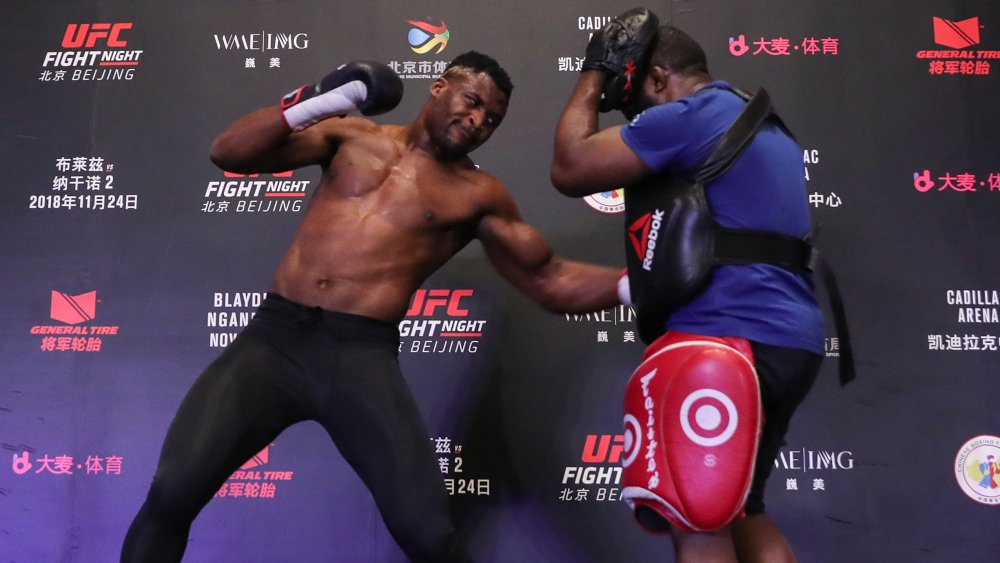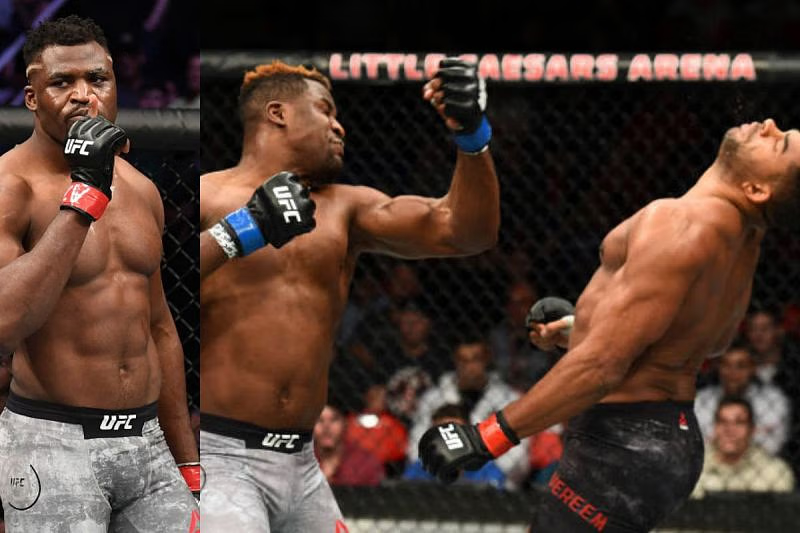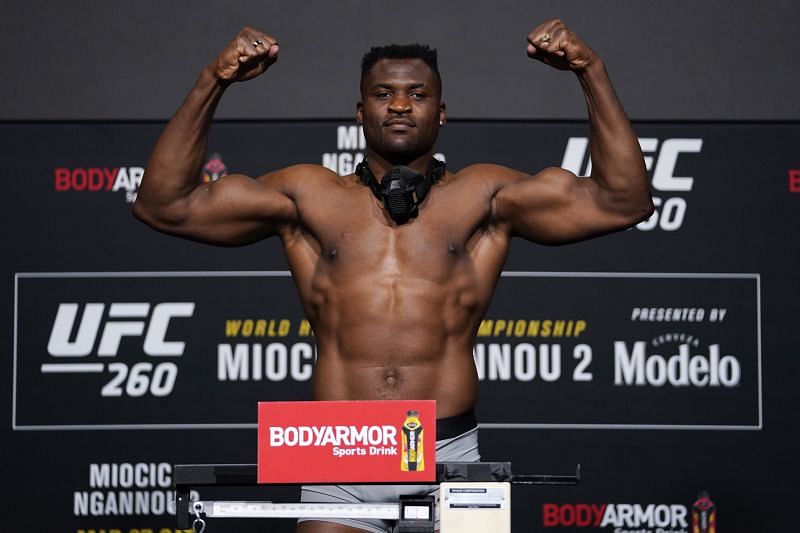Have you ever wondered about the sheer force a human can generate with a single hit? It's a question that, you know, pops up quite a bit among sports fans and people who just like to think about human limits. We often hear stories of knockout blows in boxing or martial arts, but figuring out who holds the record for the strongest punch ever recorded is, well, a bit more involved than you might think. It's not just a simple matter of one person having the biggest hit, that's for sure.
This quest to identify the ultimate puncher brings up all sorts of interesting points. Is it about raw strength, or is there more to it? We're talking about, like, the science behind a devastating strike, the famous athletes who've delivered them, and why it's so tricky to compare different kinds of punches across different sports. It's a topic that, honestly, has a lot of layers to it, so.
Today, we're going to take a closer look at what makes a punch truly powerful, how folks try to measure this kind of impact, and who some of the top contenders are for that legendary title. It's a fascinating subject, and you might be surprised by some of the things we find out, really.
Table of Contents
- The Quest for the Ultimate Punch
- Legends of the Hardest Hitters
- The Scientific Perspective: Is There a Single Answer?
- Developing Your Own Punching Ability
- Frequently Asked Questions
The Quest for the Ultimate Punch
Finding the strongest punch ever recorded is, well, a bit like trying to find a needle in a very big haystack. There isn't one single, universally agreed-upon record holder. This is because, you know, measuring punch strength is quite complex. It's not just about who hits the hardest on a machine, but also about the effect of that hit in a real situation, so.
What Makes a Punch Powerful?
A truly powerful punch isn't just about big muscles, you see. It's a mix of several things working together. Think about it: speed plays a huge part. A faster punch, even with less mass behind it, can deliver a lot more sudden force. This is because of something called momentum, which is about how much motion an object has, basically.
Then there's technique. A skilled boxer or martial artist knows how to use their whole body, from their feet right up through their hips and shoulders, to put their weight into the strike. It's not just an arm punch, not at all. This full-body involvement, you know, makes a huge difference. It's like, they're not just throwing their arm, they're throwing their entire body's weight and speed into that one point, actually.
Body mass, or how heavy someone is, also matters. A heavier person, if they can move that weight quickly and correctly, can generate more overall force. It's simple physics, in a way. So, you have speed, proper body mechanics, and a good amount of mass all coming together for that big impact, really.
Also, the point of impact is key. A punch delivered to just the right spot, like the chin, can cause a knockout with less raw force than a punch to, say, the chest. This is because the brain is quite sensitive to sudden rotational movement, so a hit that twists the head can be very effective, you know. It's not just about the numbers on a machine, but where that force goes, too.
Measuring the Impact
So, how do people even try to measure how hard a punch is? It's not like you just, you know, put a scale in front of someone's fist. Scientists and trainers use special tools. One common way involves force plates or specialized punching bags that have sensors inside them. These sensors can pick up the force of a strike in pounds per square inch (PSI) or newtons, which are units of force, apparently.
Some setups use accelerometers, which measure how quickly something speeds up or slows down. When a fist hits a target, the accelerometer can tell how much the target moved and how fast. This helps calculate the force of the hit. It's pretty clever, really, how they figure this out. But even with these tools, there are challenges, you know.
For example, a punching bag gives way, so it absorbs some of the force. A solid wall would give a different reading, but it would also probably break the puncher's hand! So, the type of target really affects the measurement. It's not a perfect science, you know, but it gives us some good ideas, more or less.
Different labs and different machines might also give slightly different readings, which makes direct comparisons a bit tricky. It's like asking "how much does a car weigh?" and getting different answers depending on whether it's full of gas or empty, or if it's on a specific kind of scale. You get the idea, so.
Legends of the Hardest Hitters
When you talk about the strongest punch, certain names just pop into people's minds. These are the folks whose hits were, quite frankly, legendary. But it's important to remember that many of these claims are based on anecdotal evidence or estimates, rather than precise scientific measurements from their prime, that is. It's more about reputation, in a way, than hard data, you know.
Boxing's Heavy Hitters
In the world of boxing, a few names always come up when discussing incredible punching ability. Mike Tyson, for example, is often talked about as having one of the most devastating punches in boxing history. His quick, explosive hooks were famous for ending fights very fast. People often say his punch was like being hit by a small car, which is, you know, a pretty vivid description, basically.
Then there's Deontay Wilder, a modern-day boxer known for his incredible knockout rate. His right hand, often called "The Bronze Bomber," is widely considered one of the most powerful in the sport right now. Some studies have tried to measure his force, and the numbers are, well, quite high. He's got that kind of one-punch knockout ability that makes every fight exciting, you see.
George Foreman, another boxing legend, also had a punch that could flatten opponents. His hits were less about speed and more about sheer, crushing force. He just kept coming forward, wearing people down with powerful shots. It was a different kind of strength, perhaps, but just as effective, honestly.
Lennox Lewis, too, had a very strong right hand, and Joe Louis, from an earlier era, was known for his precise and powerful combinations. The thing is, many of these boxers were active before modern scientific measurement tools were common. So, their "strongest punch" is often a matter of historical observation and the impact they had on their opponents, which is, you know, a pretty good indicator in itself, actually.
Martial Arts and Beyond
It's not just boxing where we see incredible striking power. Martial arts also have their share of legendary punchers. Bruce Lee, for instance, was famous for his "one-inch punch." This wasn't about raw force measured in pounds, but about incredible technique and speed to deliver a sudden, shocking impact from a very short distance. It showed how much technique can matter, you know.
In the world of mixed martial arts (MMA), fighters like Francis Ngannou have gained a reputation for having incredibly powerful strikes. His knockout wins are often very dramatic, with opponents just falling to the ground from a single hit. Some of his punches have been measured on specialized machines, showing numbers that are, frankly, quite impressive. It's like, his hits are just on another level for many people, basically.
There are also stories from traditional martial arts about masters who could break bricks or boards with their bare hands. While these demonstrations are certainly impressive, they often rely on specific techniques and target preparation, rather than just raw, unadulterated force. It's a different kind of strength, more about focus and precision, in a way, so.
Comparing a boxer's punch to an MMA fighter's strike or a martial artist's specific technique is, well, very hard to do directly. Each sport has different rules, different gloves, and different targets. A punch that's devastating in a boxing ring might be different in an MMA cage, where kicks and grappling are also part of the game. It's not apples to apples, really, you know.
The Scientific Perspective: Is There a Single Answer?
So, after all this talk, is there one person who definitively holds the title for the strongest punch ever recorded? The honest answer is, probably not in a way that everyone agrees on. It's a bit like asking "who is the best artist?" There are many ways to look at it, and different criteria, you know.
The Challenges of Comparison
One of the biggest hurdles is the lack of standardized testing. Imagine trying to compare a punch from a boxer in the 1970s with a modern MMA fighter. The equipment wasn't the same, the training was different, and the conditions of any "measurement" would vary wildly. It's like comparing old cars to new ones based on their top speed without considering the roads they drove on, too.
Gloves also play a part. Boxing gloves spread the impact over a larger area, which can reduce the peak pressure on a small spot, but still deliver a huge amount of overall force. Smaller MMA gloves, on the other hand, concentrate the force more, which can feel different to the person getting hit. This makes direct comparisons tricky, you see.
Also, the context of the punch matters a lot. A punch thrown in a lab setting, when someone is fresh and focused on hitting a machine, might be different from a punch thrown in the middle of a grueling fight, when a fighter is tired or under pressure. The human element is a big factor, basically.
So, while we have some impressive numbers reported for certain athletes, like Francis Ngannou's measured punch force, it's hard to say definitively that his punch is "stronger" than, say, Mike Tyson's best knockout blow from decades ago, given all the variables. It's a fun discussion, but a definitive answer is hard to come by, in some respects.
The Role of Science in Punching
Despite the difficulties in naming a single "strongest," science is still very useful in understanding punching mechanics. Researchers continue to study how athletes generate force, how different training methods affect punch power, and what makes a punch effective. This helps athletes improve and helps us understand human performance better, you know.
For instance, studies look at how the rotation of the hips and torso contributes to punch force, or how quickly muscles can contract. This kind of detailed analysis helps coaches train fighters more effectively, helping them get closer to their own maximum punching ability. It's about optimizing what's possible for each individual, really.
The quest for the strongest punch, then, isn't just about finding one person. It's also about pushing the boundaries of what the human body can do, and how science can help us understand and even enhance those capabilities. It's an ongoing area of interest, so the discussion will probably keep going for a long time, too.
Developing Your Own Punching Ability
While most of us won't ever be competing for the title of "strongest puncher," understanding what makes a punch powerful can be interesting. If you're looking to improve your own striking for sport or fitness, there are some general things that help. It's about, you know, building a good foundation.
Focus on your technique first. A well-executed punch, even if it doesn't have incredible raw strength behind it, will be much more effective than a wild swing. Work on getting your whole body involved, from your feet up. This means practicing how you pivot and rotate, basically.
Strength training, especially for your core and rotational muscles, can also make a big difference. Think about exercises that involve twisting movements, or those that build explosive strength. This isn't just about lifting heavy weights, but about moving quickly and powerfully. And, of course, speed training helps a lot, too.
Remember, it's always best to learn from a qualified coach or instructor, especially when doing any kind of striking practice. They can guide you safely and help you build good habits. You can learn more about proper training techniques on our site, and perhaps even find resources that fit your goals. It's all about smart training, in a way, so.
Frequently Asked Questions
How is punching power measured?
Punching power is typically measured using special equipment like force plates or instrumented punching bags. These tools, you know, capture the force of the impact in units like PSI or newtons. Some systems also use accelerometers to calculate the suddenness of the hit, which helps determine the overall force, basically.
Is there a difference between boxing and martial arts punch power?
Yes, there can be some differences. Boxing punches often use larger gloves that spread impact, while martial arts strikes might use smaller gloves or bare hands, concentrating force. Also, martial arts often include a wider range of striking techniques, like the "one-inch punch," which focus on different aspects of force delivery, you see. It's not always a direct comparison.
Can anyone develop a stronger punch?
Absolutely! With proper training, good technique, and consistent effort, most people can significantly improve their punching ability. It involves working on speed, body mechanics, and overall strength, especially in the core and rotational muscles. Learning from a good coach is, you know, very helpful for this, too. For more general information on human strength and performance, you might check out resources like studies on human kinetics, for instance.
Related Resources:



Detail Author:
- Name : Ryder Langworth
- Username : idella32
- Email : [email protected]
- Birthdate : 1978-10-23
- Address : 7011 Jana Lodge South Malika, TX 58734-7902
- Phone : 1-501-458-1655
- Company : Dickinson-Grant
- Job : Team Assembler
- Bio : Cum aut neque dolorem. Hic saepe dolorem repellat. Quas ab tenetur ipsum aliquam natus qui. Distinctio saepe veniam sunt a nobis eaque nostrum.
Socials
instagram:
- url : https://instagram.com/ashields
- username : ashields
- bio : Quia corrupti aut voluptatem sit. Iure id culpa minima ratione maxime.
- followers : 2592
- following : 2522
facebook:
- url : https://facebook.com/amanda.shields
- username : amanda.shields
- bio : Voluptatem corporis odit veritatis accusantium.
- followers : 2462
- following : 1230
linkedin:
- url : https://linkedin.com/in/shields1979
- username : shields1979
- bio : Ducimus laborum et fugiat magni.
- followers : 5241
- following : 1469
tiktok:
- url : https://tiktok.com/@ashields
- username : ashields
- bio : Reiciendis qui voluptate ipsum voluptatem sunt sit qui.
- followers : 535
- following : 2116
twitter:
- url : https://twitter.com/amanda_real
- username : amanda_real
- bio : Aut minima officiis sunt id eaque distinctio. Aliquid sunt molestiae nisi atque ad enim quasi. Impedit et consequatur sunt.
- followers : 4371
- following : 1814